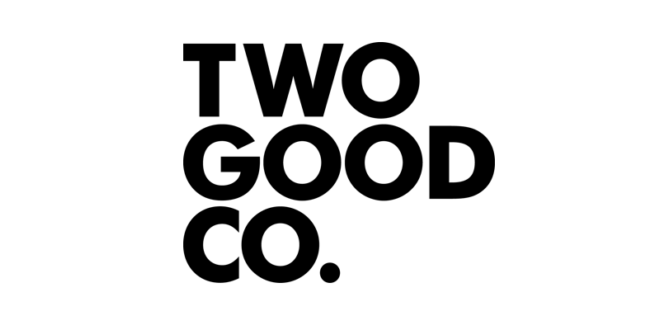
Understanding the BIA Claims Way at Berkley Insurance Australia
A guide to getting the most out of your claims experience
As one of Australia’s major specialist insurers, Berkley Insurance Australia (BIA) is dedicated to ensuring that our Brokers and Insureds receive a tailored service throughout their entire insurance claims experience.
BIA recognises that no two claims are ever the same and pay special attention to ensure that each insurance claim is given the dedicated attention it requires. Our Brokers and their clients are treated as individuals by our handpicked specialist Claims Adjusters.
Our award-winning service is predicated on the strength of our plain and simple claim philosophy “Play Fair, Pay Early”. We appreciate that when a claim is made against an insured, the time waiting for a decision to be made on what assistance a policy may provide is an uncertain and angst-ridden period. BIA’s goal is to alleviate this burden by processing your client’s claim for insurance cover as quickly as possible but we need your help! Once we have established cover is available and any liability the insured may have, we will do whatever we can to ensure the claim against our insured is resolved expeditiously.
Recognising the significant physical, emotional and, at times, financial strains a claim-triggering incident can place on our Insured, we want to ensure that BIA’s insureds feel connected to their broker and supported by BIA throughout the process.
As the insurance Broker representing our Insureds, we respect your unique position and endeavour to ensure you are kept informed as we progress through the claims process. An expeditious and positive claims outcome is important and mutually beneficial to all of us!
How to get an outcome sooner
We want to provide your clients, our insureds, with an optimal experience each step of the way and here is how you can help us achieve this. It is easy – ask your client, our insured, to provide all the documentation they possibly can at the time of notification. This makes such a difference and saves each of us a lot of time.
This information includes a completed insurance Claim Form and/or Incident Report, notes, correspondence, contracts or agreements, legal documents, medical reports, factual investigation reports, CCTV or surveillance footage (including videos and photographs), Letters of demand, Statements of Claim as well as any other supporting documents that you are able to collect and provide to us.
We encourage you to discuss the Insured’s opinions or views about the notification or claim allegations and their understanding of their policy coverage.
When we are given all of the information upfront or in a timely manner, we are able to assess the claim thoroughly and make decisions faster. Insufficiently reported claims take longer to resolve as Claims Adjusters or our panel service providers must wait for further information in order to determine indemnity and liability.
Providing the essential information at the time of the initial notification ensures we have everything we need to make an informed assessment of the claim quickly. This will save you time and reduce your risk of repeatedly chasing documents from your client and/or other external parties. It further ensures that if a claim is made in the future, the records or information we have are contemporaneous – for example, the relevant/subject person may have changed jobs and cannot be located or is unwilling to assist when a future claim is received.
The BIA Claims Way
After you receive all relevant claim documentation, you should consider the policy or policies that may respond to the incident. It is important that you take the time to review the Policy Wordings and explain these to the Insured as wordings can be subtly different between insurers.
The BIA Claims Way of managing claims is perfectly straightforward. Once the Claims Adjuster has received the notification or claim details, they will assess the information provided to ensure they have everything that is necessary. If they do, then the cover is assessed in accordance with the relevant Policy Wording and Schedule to identify the specific cover applicable including the relevant excess level and whether this is costs inclusive or exclusive. If BIA needs further information then we will request this from you, the Broker.
We will respond to you within 24-48 hours (business days) confirming receipt of the claim or notification and to advise you of our claim number together with the details of our Adjuster who will be looking after the claim. If the claim is straightforward, payments are arranged and the claim is closed.
Often our Insureds’ claims are more complicated and require Solicitors, Loss Adjusters and other professional parties to become involved. If a litigated claim cannot be resolved after one or more informal negotiation processes such as mediation or informal settlement conferences between the parties, then such claims will proceed to a Court Hearing.
Let us know
At BIA, we are always available to answer questions or listen to any feedback that you have for us. We respect the relationships we have with our Brokers and Insureds alike. Please feel free to speak with us anytime regarding The BIA Claims Way.
Related Links
Quote and Bind a Policy Instantly
BIA Wins General Insurer Claims Team of the Year
To Notify or Not to Notify | Claims Notification
Important Notice
Berkley Insurance Company (limited company incorporated in Delaware, USA) ABN 53 126 559 706 t/as Berkley Insurance Australia is an APRA authorised general insurer. Information provided is general only, intended for brokers and has been prepared without taking into account any person’s particular objectives, financial situation or needs. Insurance cover is subject to terms, conditions, limits, and exclusions. When making a decision to buy or continue to hold a product, you should review the relevant policy documents.
Share this post on
Supporting Communities: Berkley Insurance Australia Highlights 2025 Grants Program
Making Every Bind Count: Our 2026 Partnership with Two Good Co
Understanding the Difference between Management Liability and Directors & Officers Insurance


